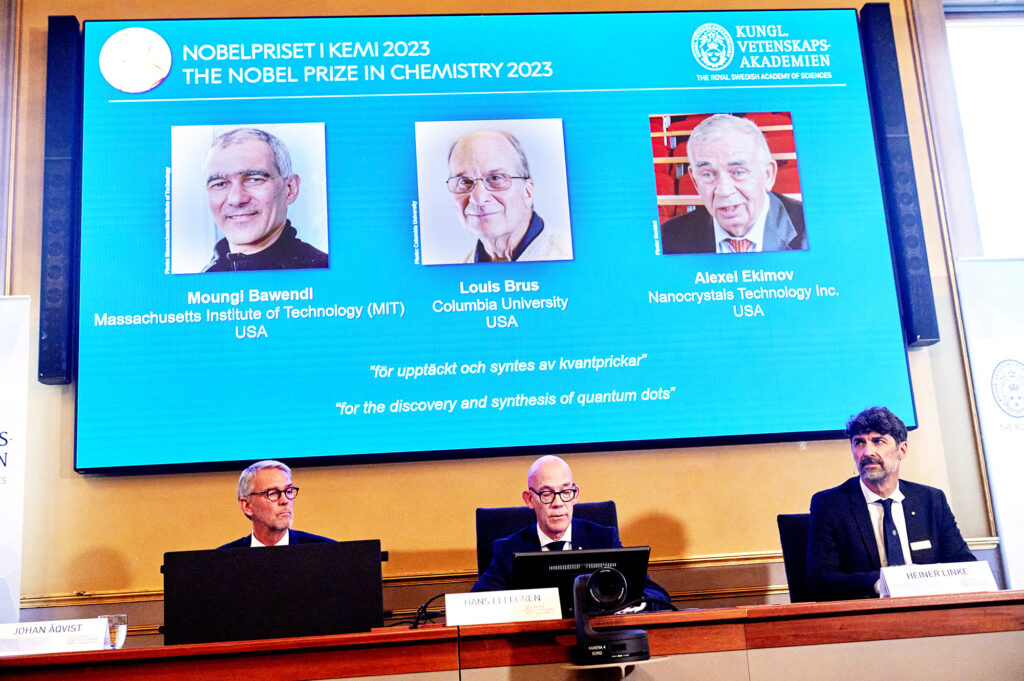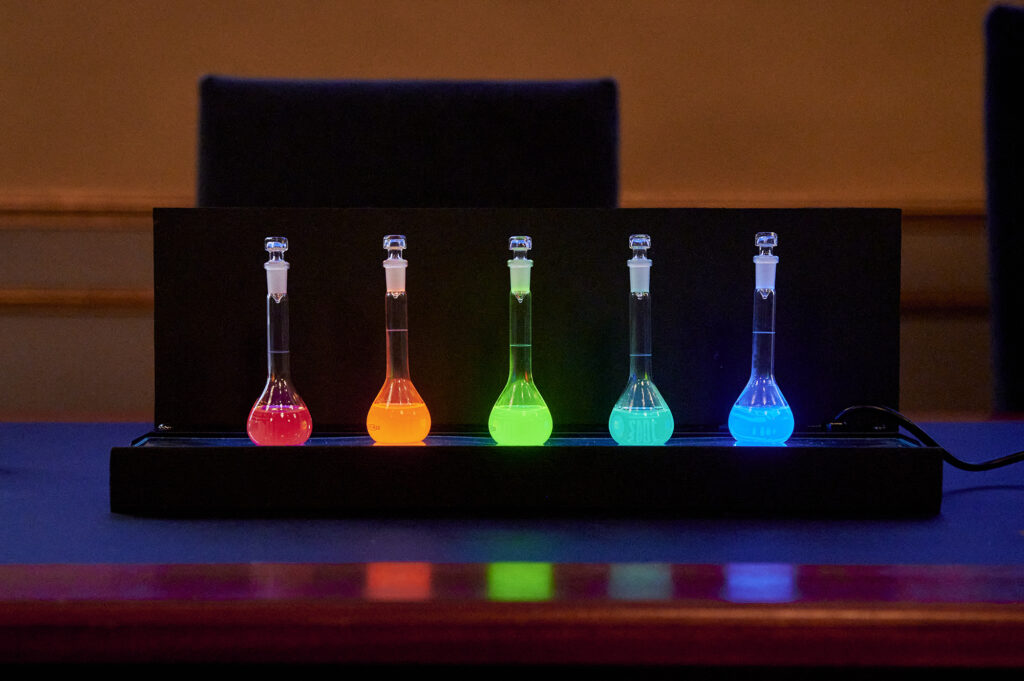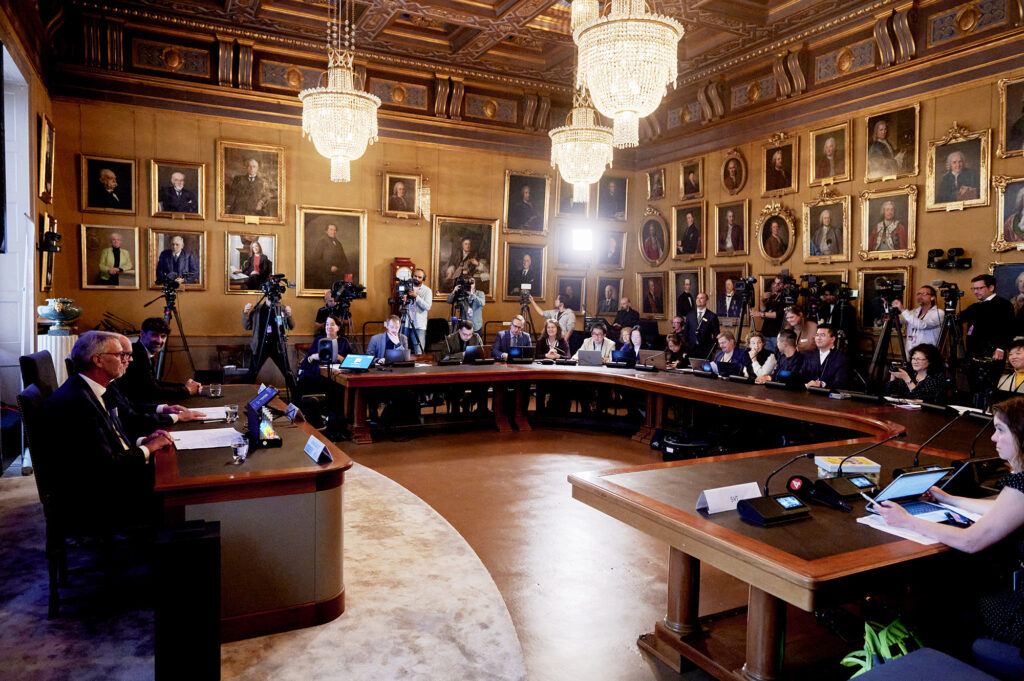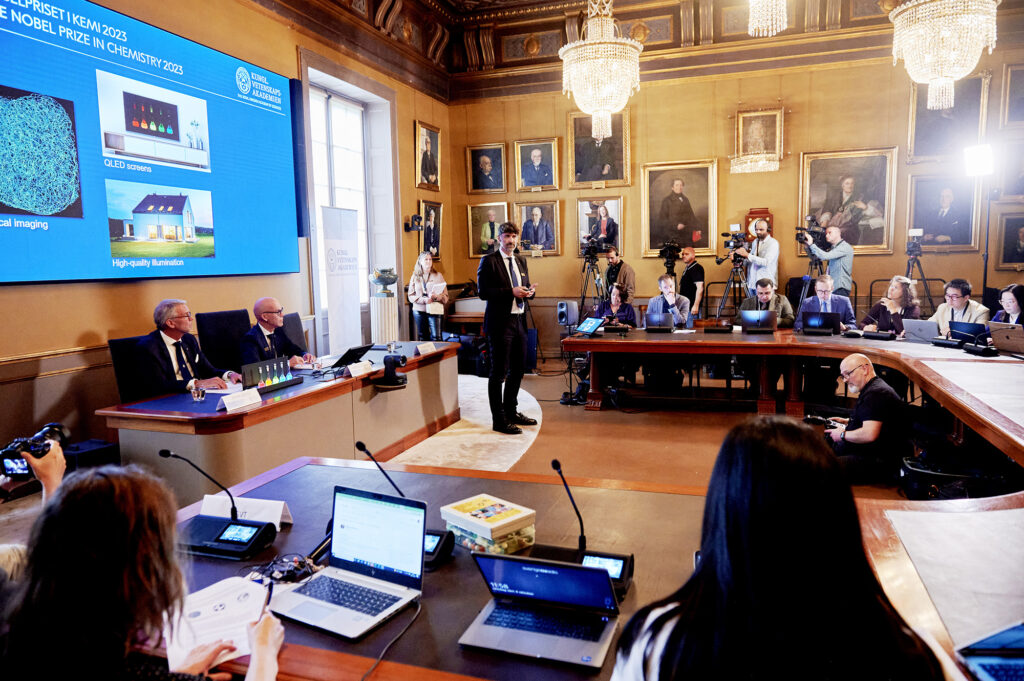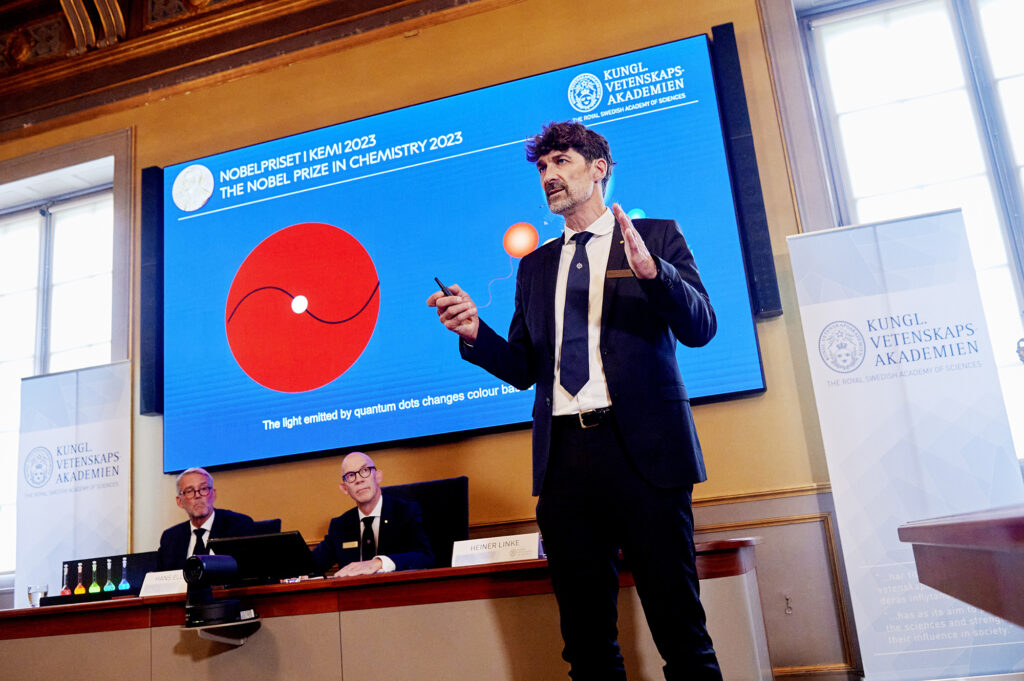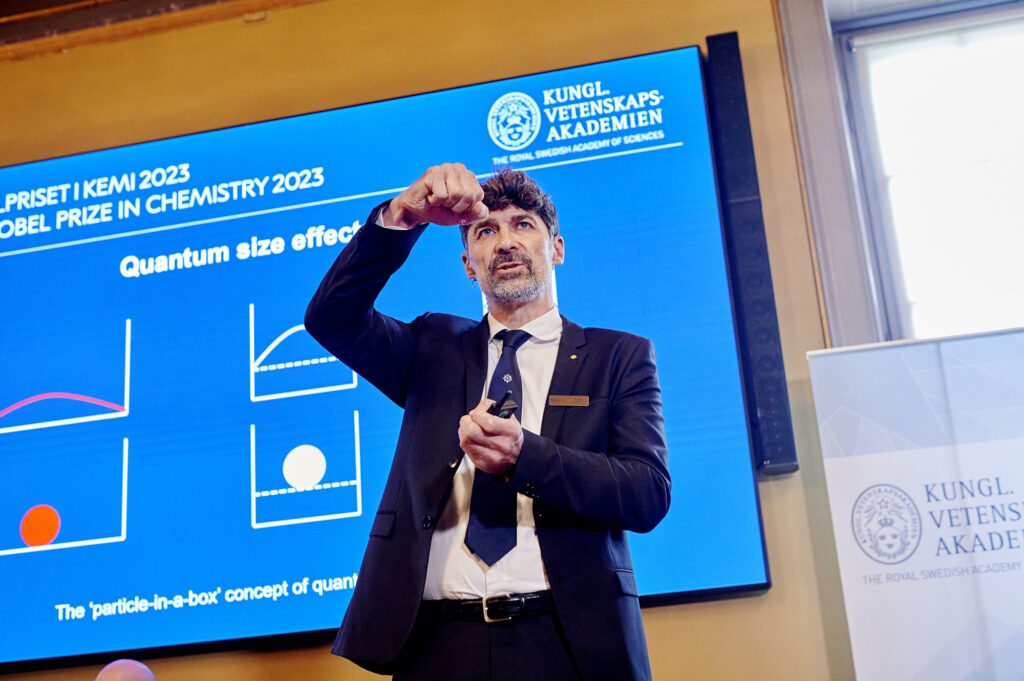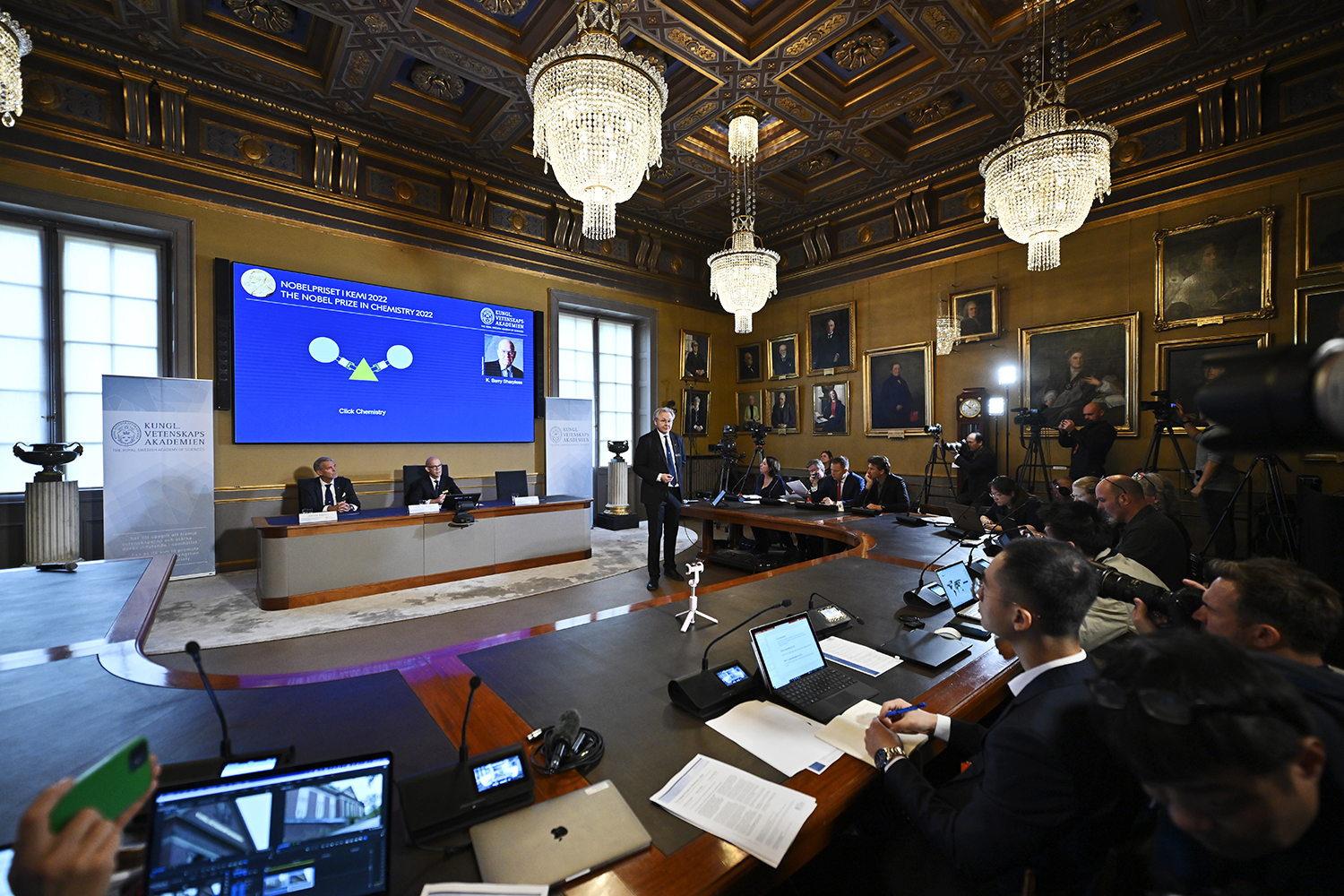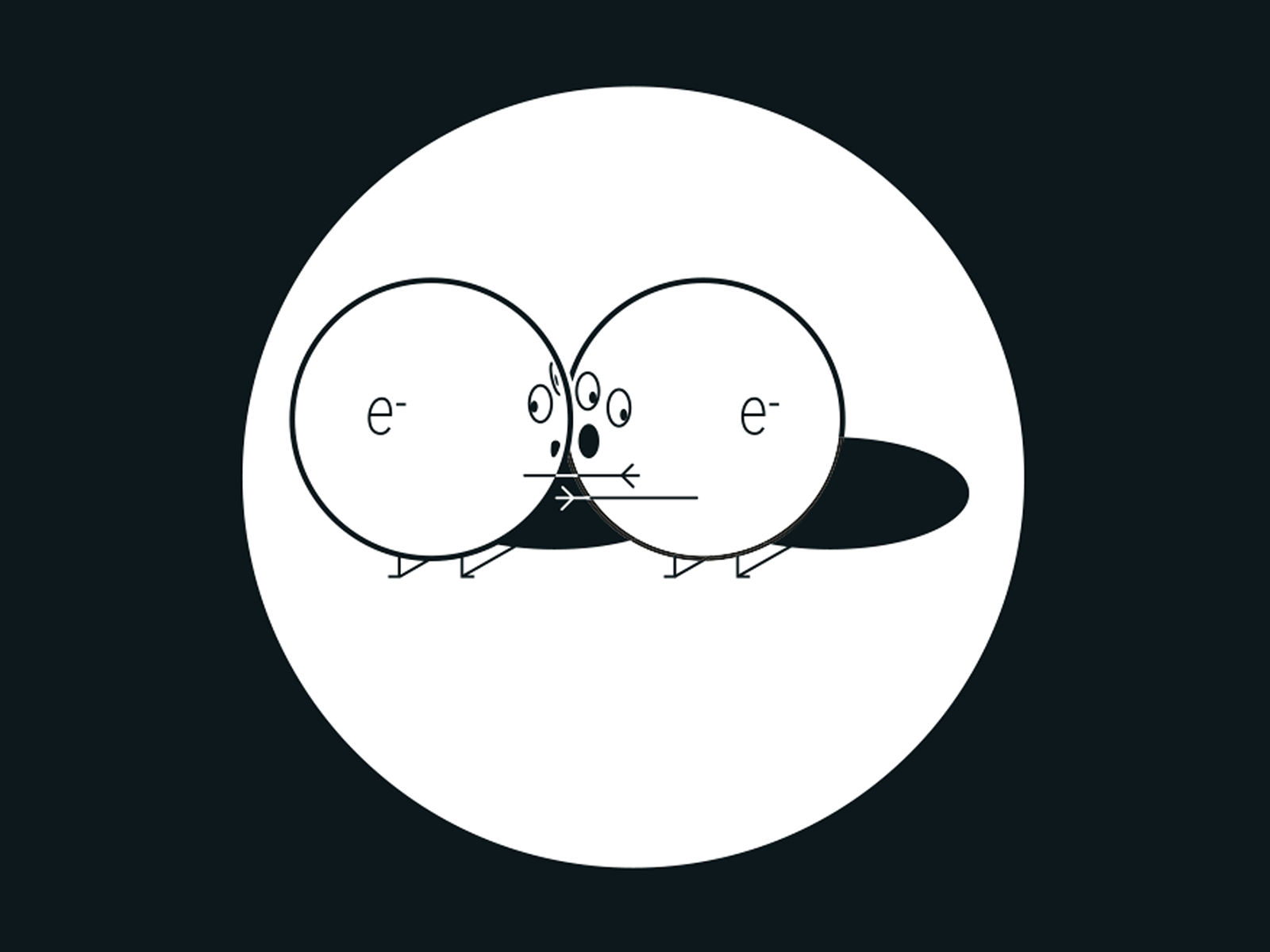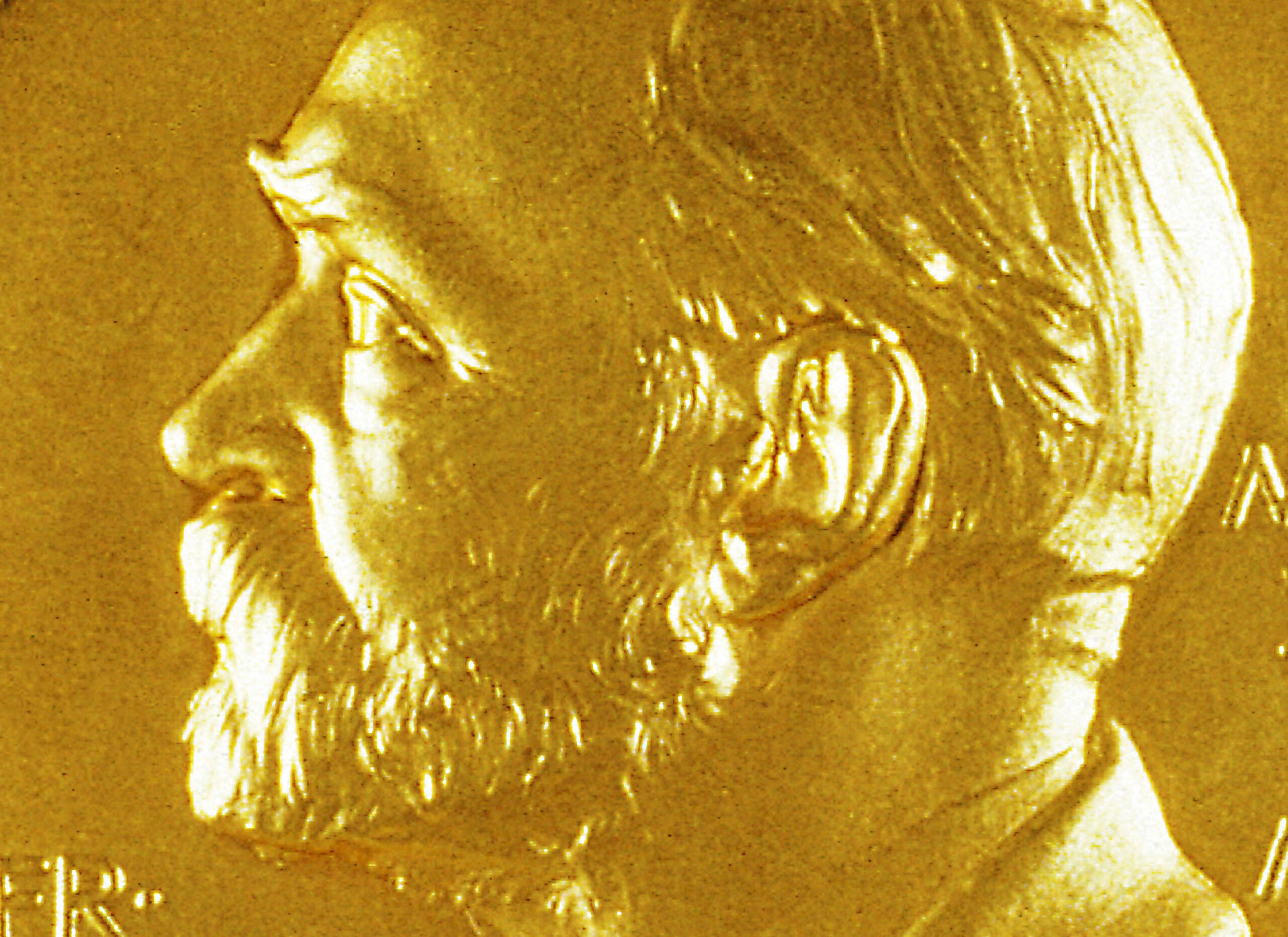The Royal Swedish Academy of Sciences has decided to award the Nobel Prize in Chemistry 2023 to
Moungi G. Bawendi,Massachusetts Institute of Technology (MIT), Cambridge, MA, USA,
Louis E. Brus, Columbia University, New York, NY, USA and
Aleksey Yekimov, Nanocrystals Technology Inc., New York, NY, USA.
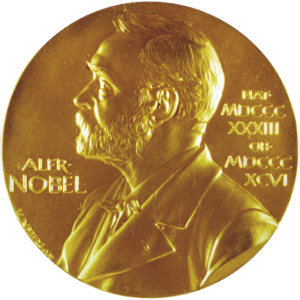
The Nobel Prize in Chemistry 2023 rewards the discovery and development of quantum dots, nanoparticles so tiny that their size determines their properties. These smallest components of nanotechnology now spread their light from televisions and LED lamps, and can also guide surgeons when they remove tumour tissue, among many other things.
Everyone who studies chemistry learns that an element’s properties are governed by how many electrons it has. However, when matter shrinks to nano-dimensions quantum phenomena arise; these are governed by the size of the matter. The Nobel Laureates in Chemistry 2023 have succeeded in producing particles so small that their properties are determined by quantum phenomena. The particles, which are called quantum dots, are now of great importance in nanotechnology.
“Quantum dots have many fascinating and unusual properties. Importantly, they have different colours depending on their size,” says Johan Åqvist, Chair of the Nobel Committee for Chemistry.
Physicists had long known that in theory size-dependent quantum effects could arise in nanoparticles, but at that time it was almost impossible to sculpt in nanodimensions. Therefore, few people believed that this knowledge would be put to practical use.
However, in the early 1980s, Aleksey Yekimov succeeded in creating size-dependent quantum effects in coloured glass. The colour came from nanoparticles of copper chloride and Ekimov demonstrated that the particle size affected the colour of the glass via quantum effects.
A few years later, Louis Brus was the first scientist in the world to prove size-dependent quantum effects in particles floating freely in a fluid.
In 1993, Moungi Bawendi revolutionised the chemical production of quantum dots, resulting in almost perfect particles. This high quality was necessary for them to be utilised in applications.
Quantum dots now illuminate computer monitors and television screens based on QLED technology. They also add nuance to the light of some LED lamps, and biochemists and doctors use them to map biological tissue.
Quantum dots are thus bringing the greatest benefit to humankind. Researchers believe that in the future they could contribute to flexible electronics, tiny sensors, thinner solar cells and encrypted quantum communication – so we have just started exploring the potential of these tiny particles.
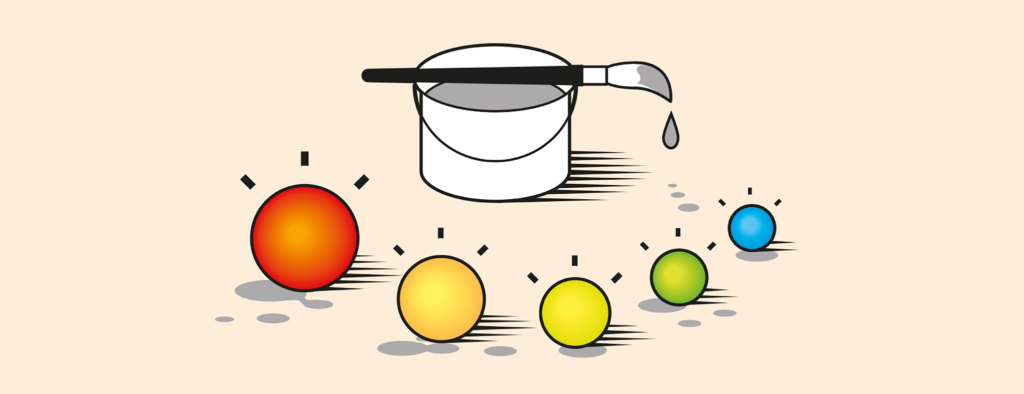
Laureates
Moungi G. Bawendi, born 1961 in Paris, France. PhD 1988 from University of Chicago, IL, USA. Professor at Massachusetts Institute of Technology (MIT), Cambridge, MA, USA.
Louis E. Brus, born 1943 in Cleveland, OH, USA. PhD 1969 from Columbia University, New York, NY, USA. Professor at Columbia University, New York, NY, USA.
Louis Brus, Columbia University
Aleksey Yekimov, born 1945 in the former USSR. PhD 1974 from Ioffe Physical-Technical Institute, Saint Petersburg, Russia. Formerly Chief Scientist at Nanocrystals Technology Inc., New York, NY, USA.
Prize amount: 11 million Swedish kronor, to be shared equally between the Laureates.
Documents
The illustrations are free to be used by media for news reporting about the Nobel Prizes and the Prize in Economic Sciences, individual teachers and educators for educational purposes, individual researchers for research purposes, or private individuals for personal, non-commercial use. No modifications are allowed, and “©Johan Jarnestad/The Royal Swedish Academy of Sciences” must be noted. Commercial use for advertising purposes is not permitted.
For other uses, permission from the Royal Swedish Academy of Sciences is required. To apply for permission, please use the Academy’s contact form
Contacts
Press contact
Eva Nevelius, Press Secretary, The Royal Swedish Academy of Sciences
+46 70 878 67 63, eva.nevelius@kva.se
Expert
Heiner Linke, the Nobel Committee for Chemistry, The Royal Swedish Academy of Sciences
+46 70 414 02 45, heiner.linke@ftf.lth.se
Read more about the Nobel Prize
The official Nobel Prize website
The Royal Swedish Academy of Sciences, founded in 1739, is an independent organisation whose overall objective is to promote the sciences and strengthen their influence in society. The Academy takes special responsibility for the natural sciences and mathematics, but endeavours to promote the exchange of ideas between various disciplines.
Nobel Prize® and the Nobel Prize® medal design mark are registered trademarks of the Nobel Foundation.
Photos from the press conference
